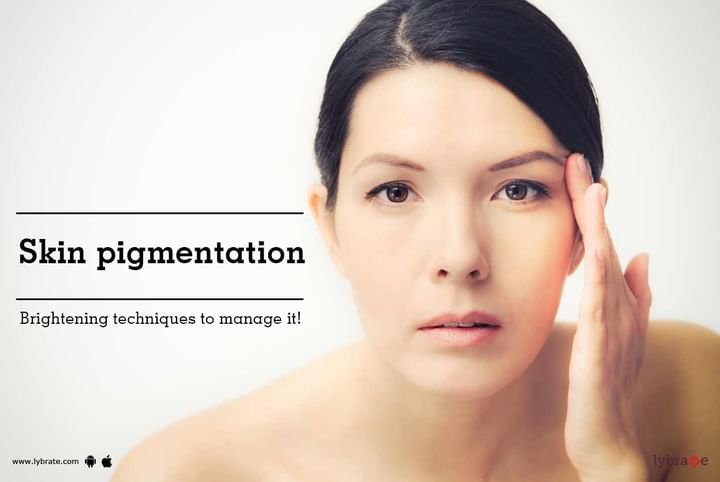Skin pigmentation - Brightening techniques to manage it!
Favorite pastime of most of the people would be to look at the mirror and analyze the skin. While acne is the most common problem, next in line would be pigmentation. One could have light patches or dark patches on the skin. The color of the skin is due to a pigment known as melanin. Greater the amount of melanin in the skin, darker the complexion. Skin color depends on the following:
- Age
- Genetics
- Ethnicity
- Degree of sun exposure
- Skin care routine
- Stress levels
- Hormonal levels (related to menstruation, pregnancy, breast feeding, menopause, etc.)
- Food habits
Hypopigmentation is less common and it is better to seek medical advice to rule out other medical conditions. Hyperpigmentation where there are increased amounts of melanin on the skin. This is quite common and happens with increased sun exposure and age. The most common types are as below:
- Melesma: Caused by hormonal changes, is very commonly seen during pregnancy.
- Lentigo: Multiple black spots or freckles. This could be caused by ageing or due to sun exposure.
- Management of hyperpigmentation: This involves two-fold approach with preventing and treatment
Tips for preventing hyperpigmentation:
Reducing sun damage and using optimal sun protection is the best way to prevent hyperpigmentation. The sunscreen should have at least an SPF (sun protection factor) of 15. A common misbelief is that sun damage happens during the bright days. However, even sun during cloudy weather causes damage, so avoid direct sun exposure as much as possible if you have are at risk of pigmentation.
Regularly scrub and exfoliate the skin to remove the dead cells from the top layers. Dry or sensitive skin can be exfoliated 1 to 2 times weekly, and oily skin can be exfoliated 2 to 3 times weekly. This helps constantly remove the top dead layers and fresh skin cells to come to the top, giving a fresher, more youthful look.
Treatment for Hyperpigmentation Pigmentation is hereditary, and so improved skin care routine is useful in improving appearance. When buying skin care products, check whether the SPF is greater than 15 at the minimum, and there are other essential ingredients like alpha hydroxyl acids, glycolic acid, and lactic acid.
These help in skin regeneration and producing a clearer skin with reduced discoloration. Vitamin C, Vitamin E, and kojic acid are also useful in treating hyperpigmentation. Dietary changes like egg white mask, citrus fruit application, potato peel can help in reducing pigmentation.
Other dietary changes to adhere to include a diet that is less in oil and refined sugars. A fresh fruit and vegetable loaded diet, adequate hydration, good skin care, and proper sun protection can go a long way in reducing pigmentation. If you wish to discuss about any specific problem, you can consult a Cosmetic/Plastic Surgeon.



+1.svg)
